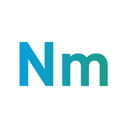Neometals (NMT) - Additional European Battery Project Added to Portfolio
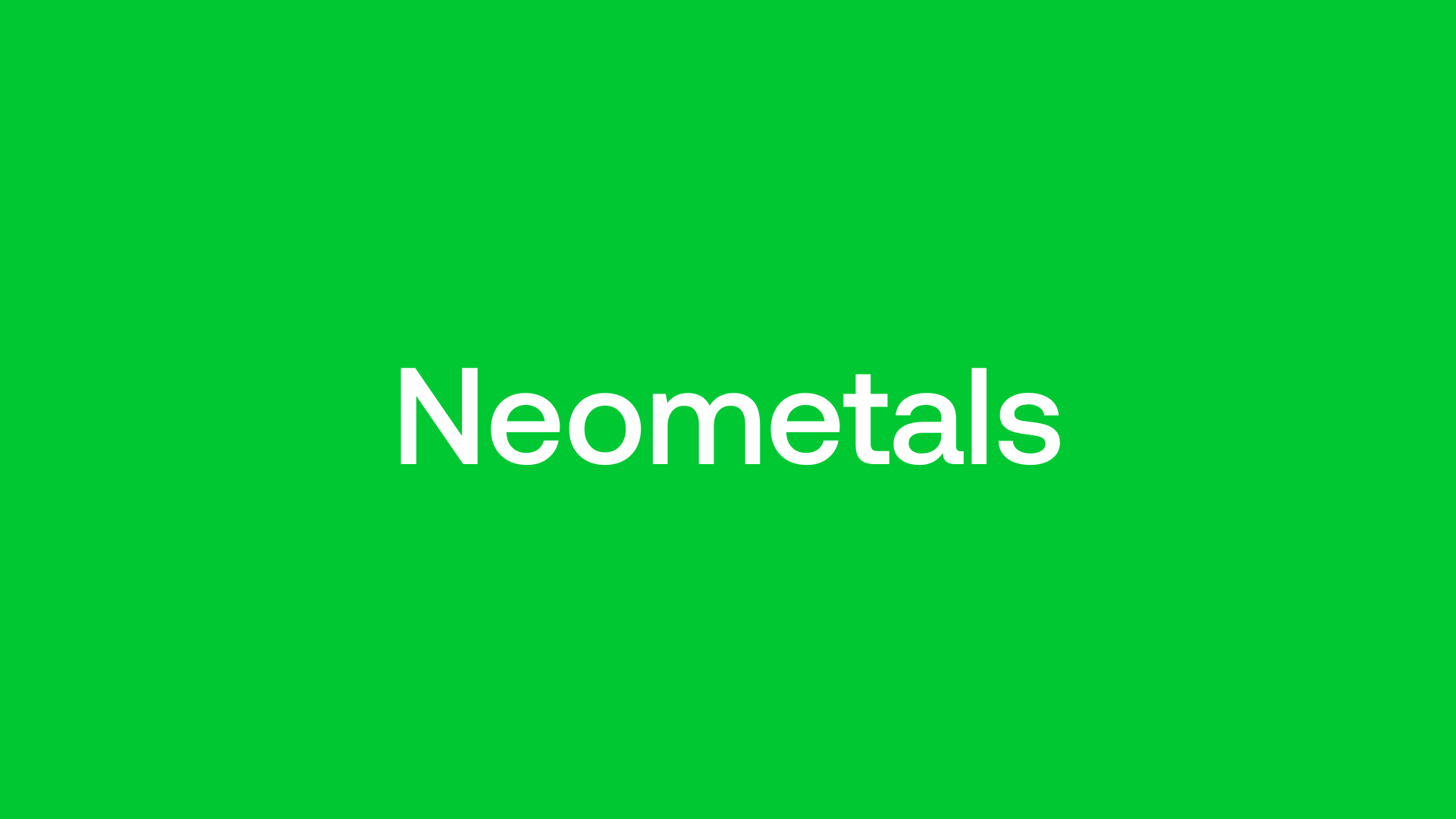
Interview with Chris Reed, CEO of Neometals, and Jeremy McManus, GM
Neometals is a mineral and advanced material company involved in the recycling, and production of high-grade lithium and vanadium. The company was founded in 2001 and is headquartered in Australia. Alphamet Management Pty. Ltd, Mount Finnerty Pty. Ltd., Reed Advanced Material Pty. Ltd., Mt. Edwards Lithium Pty. Ltd., Barrambie Gas Pty Ltd., and Innovation Pty. Ltd (formerly Australian Vanadium Exploration Pty. Ltd.), are the companies' subsidiaries.
Matt Gordon caught up with Christopher Reed and Jeremy McManus.
Christopher is the CEO and Managing Director of Neometals. He started his career in the mining industry in 1990 and co-founded Reed Resources in 2001. He is a member of the AusIMM (Australasian Institute of Mining and Metallurgy) and former Vice President of the Association of Mining & Exploration Companies. His educational background includes a Bachelor of Commerce degree from the University of Notre Dame, WA School of Mines.
Jeremy is the General Manager of Commercial and Investor Relations at Neometals. He has over 2 decades of experience in the resources and technology materials sector. He previously served as a Commercial Manager for Talga Resource along with various corporate finance, funding, and advisory roles across investment banking and accounting sectors. Jeremy specializes in strategy management, technology commercialization, capital markets, and IP management.
Company Overview
Neometals is an innovative mineral and advanced materials company focused on a sustainable future. The company seeks to de-risk and develop long-life projects with strong integrated partnerships throughout the value chain. The company was founded in 2001 and is headquartered in Australia. The company is listed on the Australian Stock Exchange (ASX: NMT).
Patented Technology
Neometals develops opportunities in minerals and advanced materials that are essential for a sustainable future. The company developed a process called ELi, a patented technology to purify and electrolyze lithium chloride solutions generated from hard rock or brine resources to produce lithium hydroxide. This process was jointly developed by Neometals and Mineral Resources back when the companies were partners at the Mount Marion project.
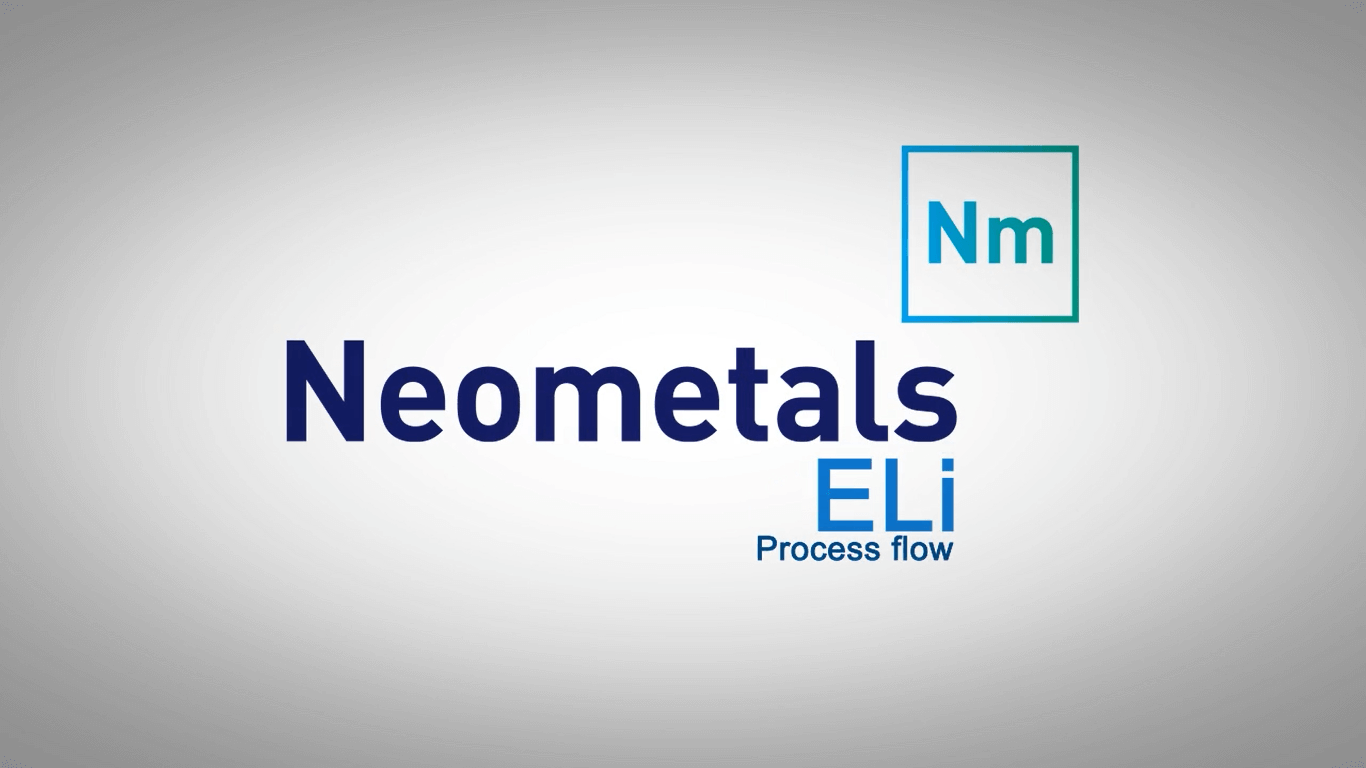
The process was originally planned as a tool to lower operating costs and improve the production yield for lithium hydroxide. The company is now at a point in the lithium cycle where it is approaching peak spodumene. The company is currently looking to source the next 1Mt-2Mt LCE (Lithium Carbonate Equivalent) to ensure it has a sufficient supply of batteries. This is because LCE is the only material in the battery that cannot be substituted.
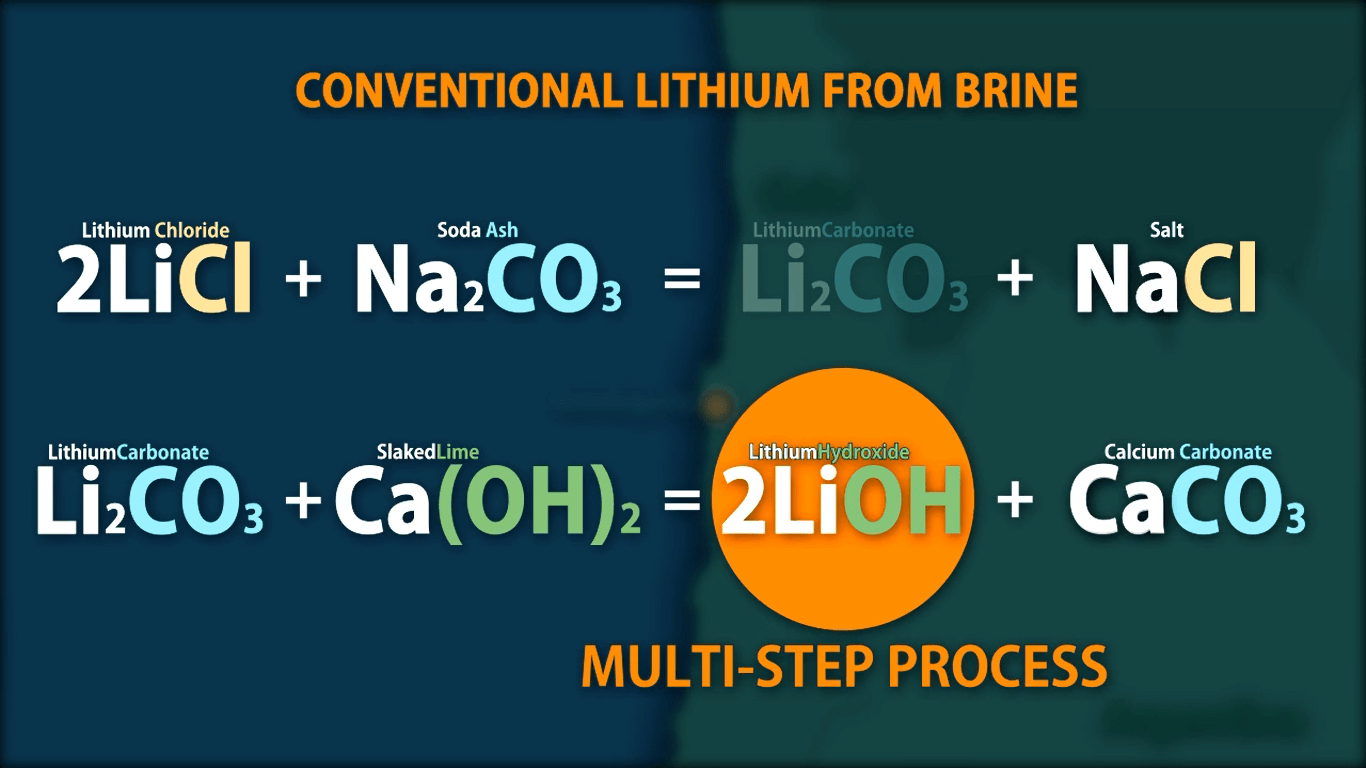
70% of the world's lithium resources are present within lithium chloride brine deposits. Neometals uses a solvent extraction and ion exchange process, similar to electrolysis utilized in battery recycling to extract lithium hydroxide. This process is significantly cheaper and less carbon-intensive than the traditional soda ash and caustic process.
The company is focused on the use of renewable energy for running its operations. This leads to a lithium extraction operation with significantly lower operating and capital costs. Neometals entered into an agreement with Bondalti Chemical, a Portugal-based company with extensive electrolysis experience for the development of a lithium hydroxide facility on the Iberian Peninsula. Around 3 Billion cars are made on the Iberian Peninsula, the majority in Spain, followed by Portugal. This deal will bring domestic production of lithium hydroxide for future EVs (Electric Vehicle) within the region.
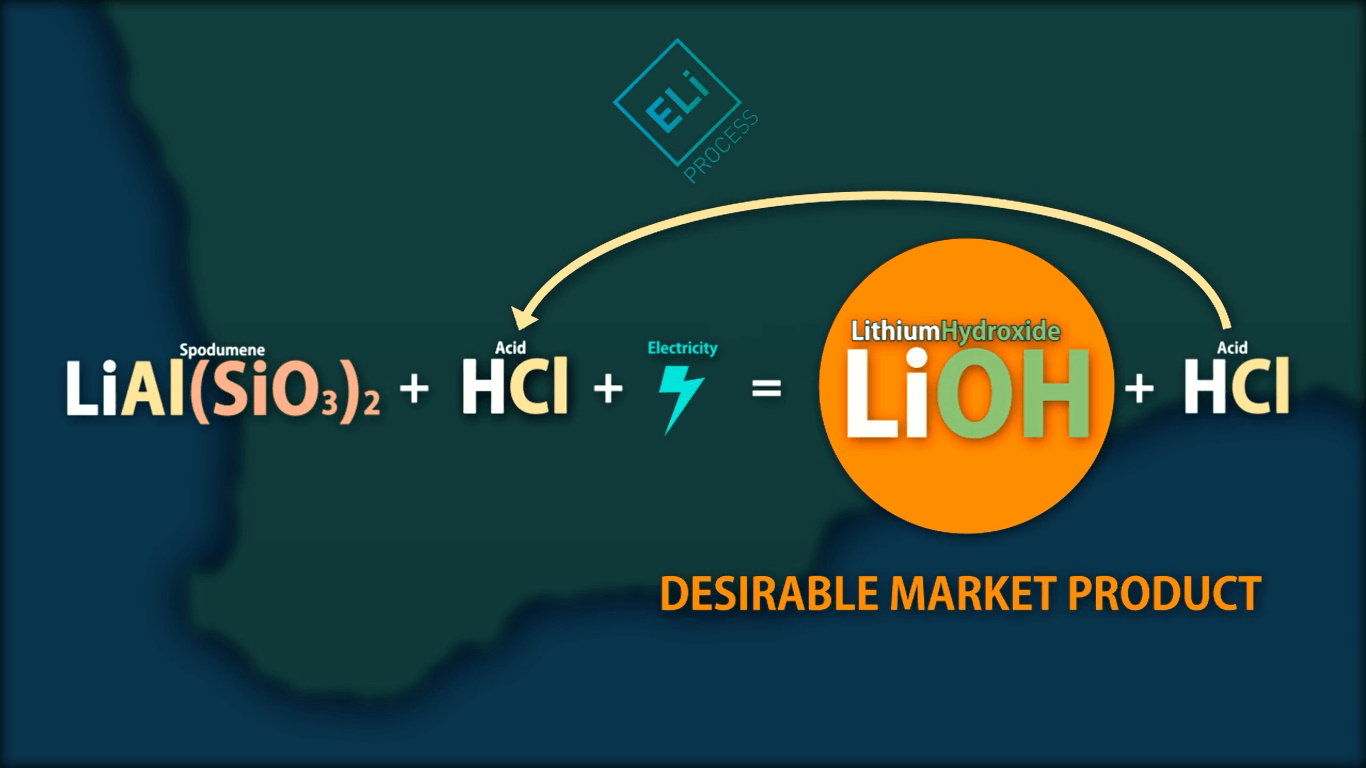
Commercializing the ELi technology
Neometals is working towards the commercialization of the ELi technology. The company has a technical partner on board to go through the final stage of valuation which consists of piloting the brines. The process was originally developed on lithium chloride solutions from Chile. The company has tested Argentinian brines from various deposits. The initial testing was conducted with lithium chloride made from Mount Marion spodumene.
The company has tested the process on a continuous semi-pilot scale in Buffalo, New York. Currently, the project is being carried out at Bondalti's dedicated pilot facility called the Estrella chlor-alkali facility. This site provides the company with the required infrastructure, and trained staff to run its operations. The facility is permitted and the entire generated waste product is plumb into the existing infrastructure. This arrangement is similar to Neometals' previous working relationship with SMS Engineering group where the company built its demonstration plant at the center of manufacturing.
The extraction process is based on Chlor-alkali, a century-old technology. The extraction process utilizes traditional chlor-alkali cells to electrolyze a lithium chloride solution. Although the process has higher power requirements, the end-product is valued 10 times higher than a traditional chlor-alkali operation. The end product is lithium soda or lithium hydroxide, meanwhile, a traditional chlor-alkali operation produces caustic soda.
Neometals has flexible business models as it seeks to commercialize its lithium hydroxide supply. The company is open to either developing the business model as a principle in a JV (Joint Venture) or licensing the technology for commercialization.
SQM, one of the world's largest lithium producers, along with Ganfeng Lithium Co. Ltd had a business selling 6% saline-concentrated brine solution between 2010 and 2015. This demonstrates the demand and potential for the commercialization of lithium hydroxide.
The ELi technology enables the unlocking of lithium brine deposits present in the ground. Traditional lithium production from brine is often time and cost-intensive when it comes to building and operating the project. Additionally, the hard rock converter plants take longer to commission. These plants produce saline-concentrated brine, or liquid spodumene featuring 1%-6% Lithium oxide. In China, it's common practice to convert spodumene into lithium chemicals. Neometals believes that the ideal way to process lithium is through Salars, where the operation can be powered by renewable energy.
Modern DLE (Direct Lithium Extraction) proponents have over 60 different variants. These majorly recover lithium chloride. Compared to this, Neometals has developed a flowsheet that enables it to produce excess lithium hydroxide, following which the solution is sparged with carbon dioxide to make carbonate. In a traditional operation, impurities are removed by the introduction of sodium in the process. Meanwhile, Neometals utilizes lithium carbonate and lithium hydroxide to remove impurities. This is done by adding more lithium into the mix and recirculating a load of 10%-15%.
The company published its overall operating and capital costs for both hard rock and brine-based extraction. It proposes the purchase of lithium-brine deposits from other companies at a percentage. Based on the FOBC trade data, this percentage is around the 50% mark.
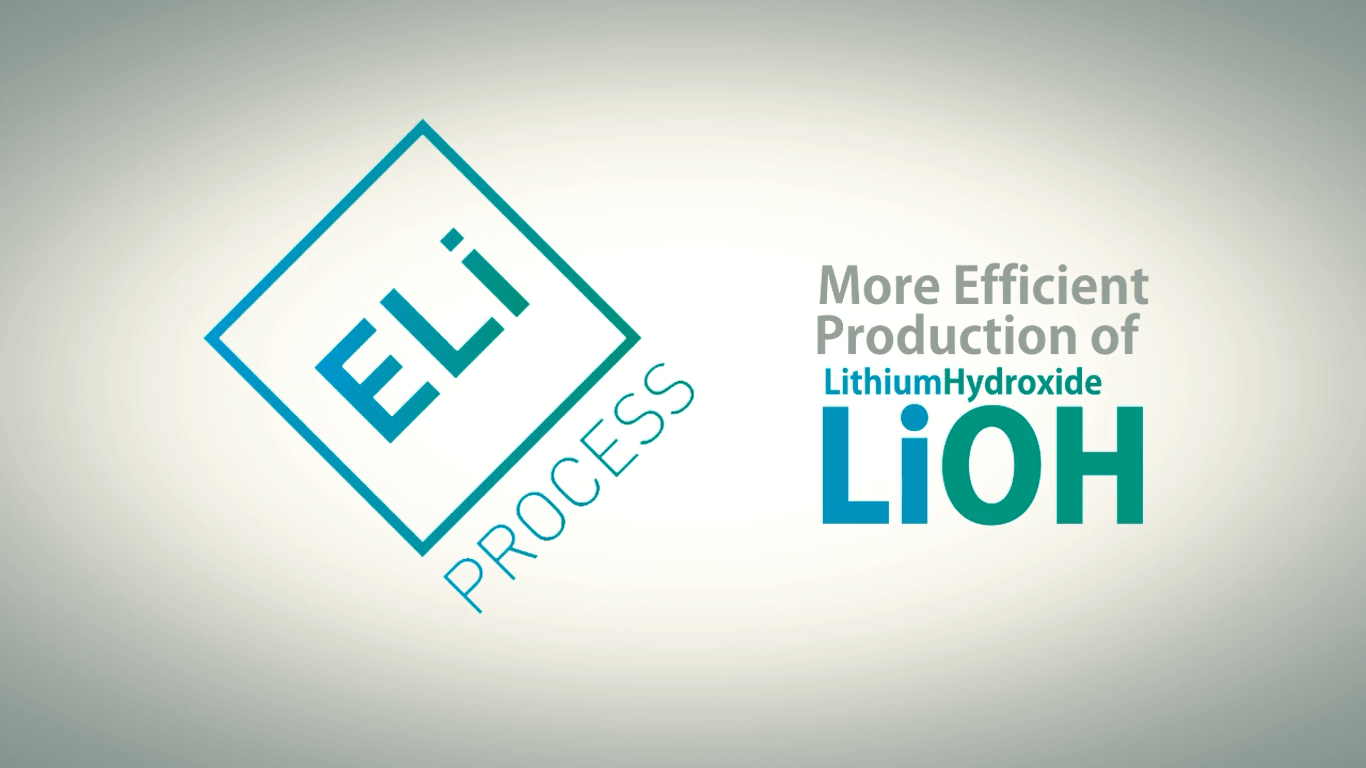
Operational Flexibility
A lithium chloride solution will pay back 50% of what a contained LCE would fetch. This negates the need for companies to build chemical plants and import soda ash and caustic from the US, significantly bringing down the cost and complexity of operations. As Neometals' Salar-based operation employs renewable power, the extraction process has the lowest carbon footprint of any lithium extraction process.
Neometals is currently open to various options for the commercialization of its ELi technology. It can either start spodumene operations to generate a cash reserve and build a refinery in the future or assist developers to create an integrated operation where revenue is generated through concentrate. Since the brines are incredibly large-sized, the company may purchase the brines from the developers after a few years of operation. It may also toll convert it or enter into a joint venture. The company also has the flexibility to purchase its own supply of brine.
The company's technology is quite similar to battery recycling. It has made the process extremely cost-effective with attractive economics. It is currently looking for potential deals to feed the battery plant and lithium refinery. The company's operations are significantly lower cost than the technology employed by the rest of the market.
The company has successfully developed a DLE and purification electrolysis process, both powered by renewable energy. The remaining reagents used are lithium carbonate, lithium hydroxide, solvent extraction, and ion exchange to provide a compelling and low-cost operation.
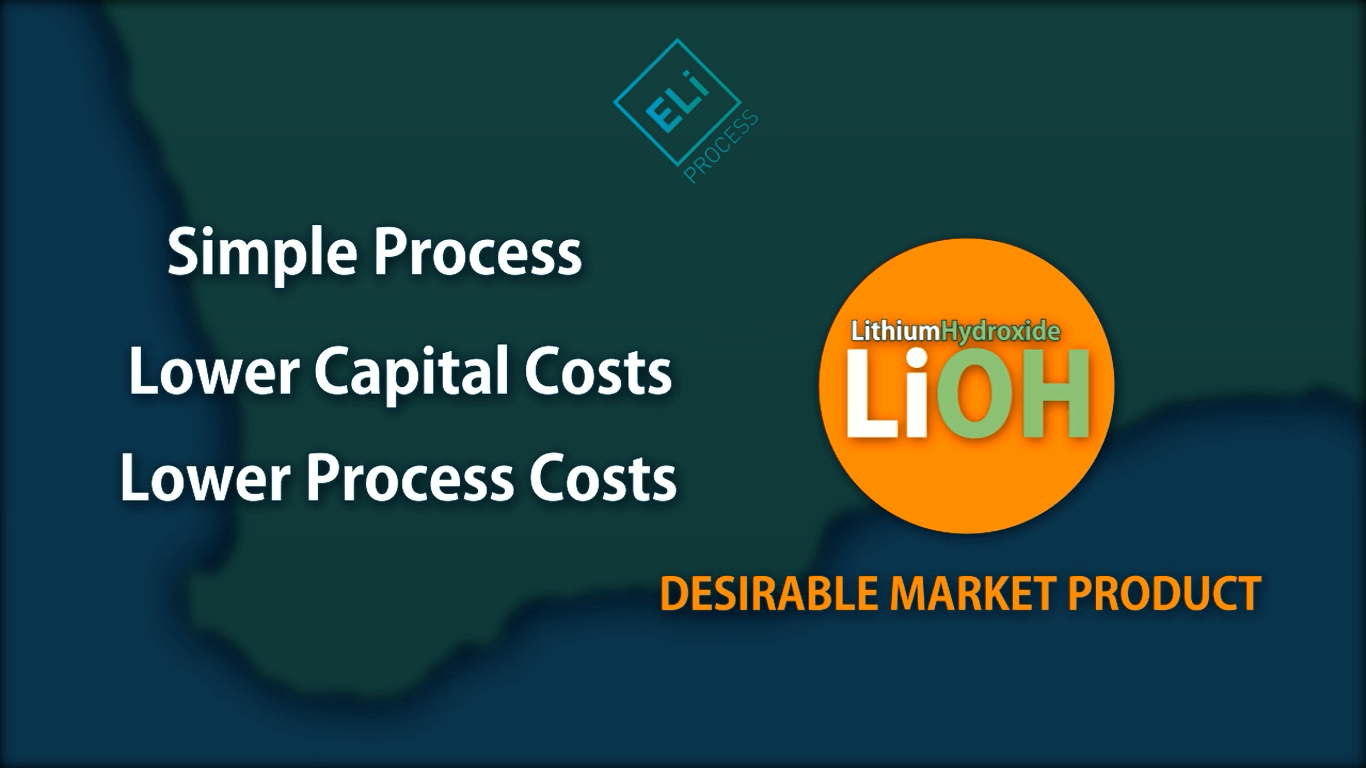
The Lithium Market
Neometals anticipates that the market demand for lithium will continue to grow. The economics of the company's lithium project is similar to an integrated battery recycling operation. Lithium production is expected to grow at a compounded rate of 30% per annum. It is expected that the current spodumene suppliers will be tapped out by 2025-2026, a time where the market supply of spodumene will be at its peak. As the majority of spodumene supply goes to China, the country will be the determining factor in the balance of lithium supply. The company predicts that 70% of the brine sources for lithium will originate from hard rock deposits in Australia, Africa, North America, South America, and the Uyuni deposit in Bolivia.
Capital Considerations
Neometals's CapEx (Capital Expenditure) requirements for a spodumene converter were estimated at $138M, 5 years back. A brine-based operation would negate the need for spodumene converting kilns which would further bring down the project CapEx.
The ELi technology has a 70/30 ownership between Neometals and Mineral Resources. The technology either can be licensed to big producers or utilized by companies through a JV. Neometals seeks to generate a cash flow and enable the producers to develop concentrate, developing a market.
The company seeks to bring additional lithium to the market. A barrier to entry for brine-based lithium operation is the high cost, which is effectively remedied by Neometals' extraction process. The company believes that millions of tons of lithium supply needs to be added to the market to meet the steep rise in demand in the coming years.
The company's extraction technology effectively eliminates the need for importing massive quantities of reagents. This helps bring down the operating costs while also significantly reducing the carbon generated from the supply chains. Neometals anticipates that the Australian spodumene producers and Chinese converters will play a major role in balancing the lithium market in 2025-2026.
Cash Position
Neometals' lithium project has an estimated funding requirement of $70M-$80M to enter production. The company has provided dividends to its shareholders at a shared cost of $4M.
The company is looking to attain funding through a special purpose vehicle, either through a joint venture with Bondalti or RAM (Raid Advanced Materials), a 70/30 venture between Neometals and Mineral Resources. The company is also looking to procure 30% capital funding from the EU. This capital cost rebate is designated by the EU for the domestic production of lithium chemicals within the region to underwrite the future of the car industry as it transitions towards EVs.
Targets 2021 and Beyond
Neometals currently has multiple projects ongoing in Europe. These include battery recycling, vanadium recovery, and a lithium project. It is looking to bring additional team members into Europe once the mandated quarantines are over.
The company is also advancing its plans for a London Stock Exchange's AIM listing by March 2022. This listing will enable the company to attain relevancy in the European market and gain access to funds by having major operations within the EU.
By mid-2022, the company is looking to make a decision on a 50t/day commercial battery recycling operation. The company currently has a 10t/day operation which is expected to commence by March 2022. The decision on its vanadium recovery project will be made by the end of the next year.
The agreement with Bondalti will move forward in mid-2023. Bondalti is currently in the pipeline of European projects. Additionally, the company has an upstream of hard hard titanium-vanadium deposits which are being run by a dedicated team.
Each of Neometals' projects is being run through dedicated teams and management and is in joint ventures with various entities. The company does not seek to build massive operational teams as the majority of its operations are designed to run as joint venture companies in the partners' respective jurisdictions.
Neometals held its AGM (Annual General Meeting) in July 2021. The company has had a strong year with shareholder returns increasing YoY (year-on-year) for the past 5 years. The company saw a 4x jump in its share price. It spinned-out its nickel asset into a new company called Widgie Nickel, where all the shares went to existing shareholders. This new company was highly rewarding for the investor base.
The company also made strong progress in the ESG (Environmental, Social, and Governance) domain. It released a second sustainability report and set several deliverables and targets. The company is also aligned with TCFD (Task Force on Climate-Related Financial Disclosures).
Additionally, the company grew its team while keeping a focus on diversity. It now has a 31% female workforce. The company has 3 core projects that are due an investment decision in 2022. It will continue to run R&D (Research and Development) on the ELi technology.
Neometals intends to start commercial operations at its Germany-based disposal recycling facility in early 2022. This will enable the company to start generating revenue. The demonstration plant is being utilized to make the required modifications for a commercial operation.
To find out more, go to the Neometals website
Analyst's Notes




Subscribe to Our Channel
Stay Informed










